Coping with trauma: Acknowledge incident and talk about emotions, say experts after River Valley High death
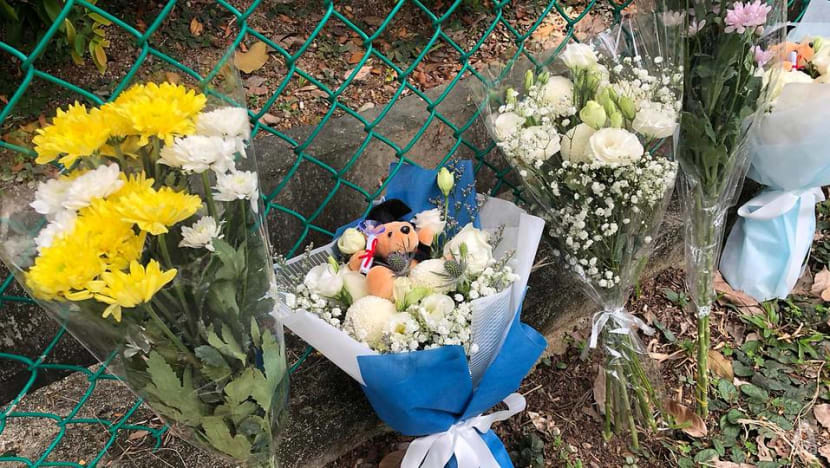
Flowers are seen outside River Valley High School on Jul 20, 2021. (Photo: Tan Si Hui)
SINGAPORE: It is "normal" to experience symptoms of trauma in the wake of incidents such as the death of a River Valley High School student, said psychologists CNA spoke to.
A 13-year-old boy was found lying motionless with multiple wounds in a school toilet on Monday (Jul 19). A 16-year-old schoolmate has been charged with murder.
According to Law and Home Affairs Minister K Shanmugam, preliminary investigations suggest that an axe seized after the incident was bought online.
READ: River Valley High death: Investigations suggest axe was bought online, says K Shanmugam
Many students can expect to be affected to a “manageable degree” after the incident, said adjunct associate professor and senior principal clinical psychologist at the Institute of Mental Health (IMH) Clare Yeo.
"A small group may be more affected and show signs of withdrawal from their routines and/or become more easily irritable and frustrated as they react to the incident," she added.
“But with some social support or self-reflection, we will bounce back."
COPING IN THE IMMEDIATE AFTERMATH
In response to questions on how students can cope with trauma, Prof Yeo said pupils can look out for themselves and for each other by “noticing behavioural and emotional changes that aren’t typical of their usual selves before the incident”.
Other experts noted that it is important to acknowledge what happened.
“No one who is involved (should) tell you that they think they’re coping okay. That ‘okay-ness’ is an abnormal reaction. We want the student, teacher or parent to acknowledge that it’s scary and shocking, and then acknowledge the impact,” said trauma specialist and psychotherapist Jasmine Badge.
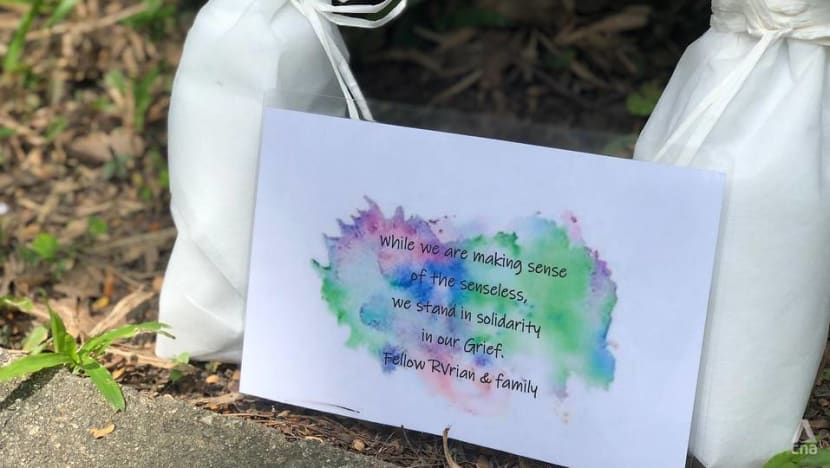
Dr Badge, who works at Heart to Heart Psychotherapy, pointed out that after a traumatic incident, people may lose their sense of certainty and their reality becomes something like “a horror movie”.
“When we experience trauma to this degree, an existential shift occurs in us. Unless it’s processed, we start to view the world from a very different lens, where there are bad people and awful things happen to us,” said Ms Natalia Rachel, a trauma therapist from Illuma Health.
“If we don’t take time to process it, it defines who we go on to become, and this kind of trauma could lead us to become very defensive … and afraid people.”
READ: 'We cannot make sense of what happened': PM Lee offers condolences after River Valley High School death
Asked to define trauma, Ms Rachel said it is “when a past experience of threat, which is over, is still living, breathing and existing in us”.
Trauma is “not the event itself, but what shows up after”, she added. The effects are “so individual and unique, and the way it shows up is going to be dependent on the individual’s ability to process the event”.
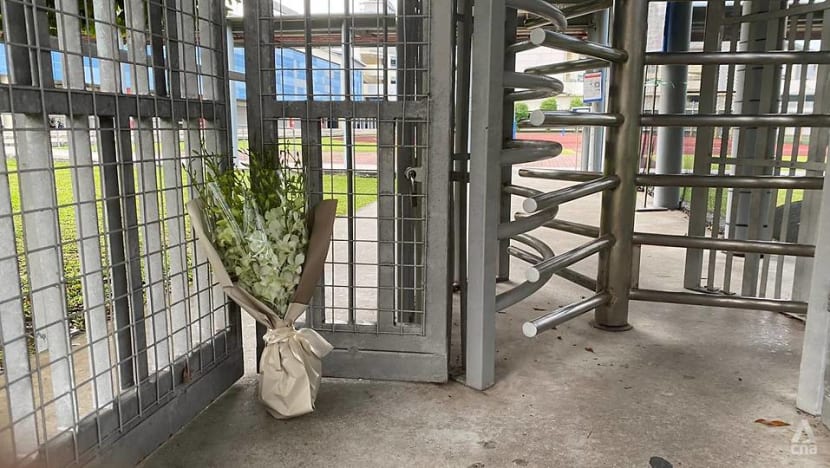
While the initial reaction would be one of shock, the range of emotions would include anger and sadness once the incident sinks in, especially for schoolmates who were directly affected, said Prof Yeo.
“Many will be searching for answers to help them understand why it happened and strive to regain a sense of control," she added.
Other signs of trauma that students, parents and staff can look out for include anxiety, mood swings, dissociation and flashbacks, experts noted.
EMOTIONAL, PHYSICAL SIGNS OF TRAUMA
One of the most obvious markers of trauma is “overwhelming experiences of anxiety, either underlying all the time or re-triggered when they’re going to school", said Ms Rachel.
This anxiety can show up when parents are sending their children to school.
Anxiety can also show up “relationally”, such as when one senses a foreign person or someone coming up behind them. It could also surface through "angry outbursts, pockets of crying or being unable to respond”, observed Ms Rachel.
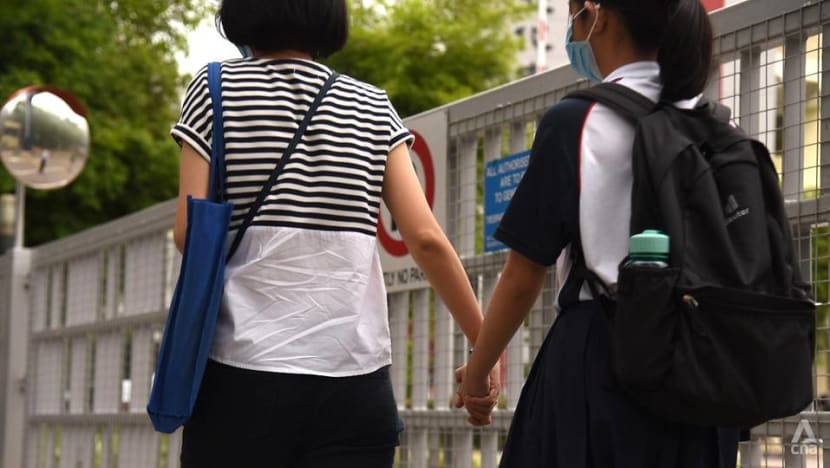
As for teachers, they might experience huge helpings of anger, grief and confusion, along with a sense of helplessness which could trigger guilt, she added.
“My sense is I think that teachers wouldn't have had training on how to deal with a situation like this, so they wouldn’t have been equipped with the resources, which would then bring about another sense of anger," she said.
Aside from mental stressors and emotional changes, Ms Rachel added that trauma can also show up as physical symptoms.
“For children, a really common thing to happen is that they don’t have words for their experience, but they might start to develop stomach aches or headaches, or become really hyperactive or really tired. It depends on the individual, but that’s something to look out for,” she said.
There may also be dissociation, which entails “checking out of the body” after experiencing a traumatic event when individuals “don’t have the capacity to process what’s going on in our body”, added Ms Rachel.
“For some people, they don’t come back (to their body). This might present as a child not being able to pay attention in school or being less productive, not getting their work done, or even not responding to teachers’ or parents’ suggestions or questions.”
Parenting coach Carol Loi, 50, said dissociation also shows up as a lack of focus.
“Your child might want to do work or focus on schoolwork. But sometimes the thoughts and emotions will come, and they might not be able to focus on the task at hand,” she said.
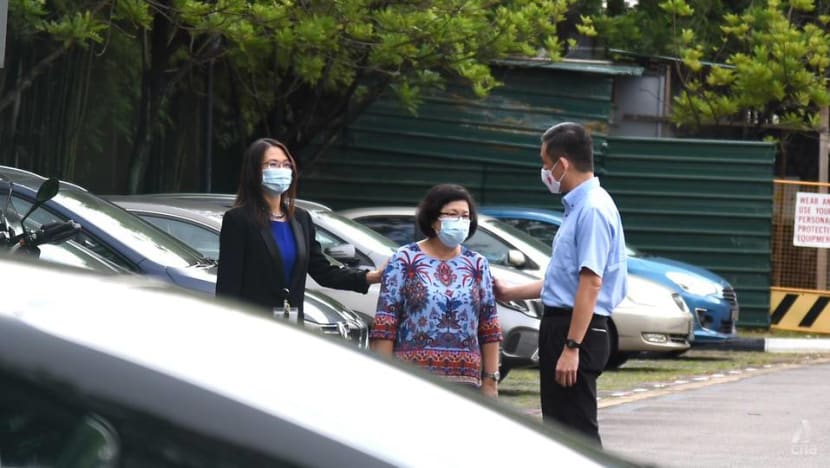
Finally, individuals may experience flashbacks, which might be the “hardest to get away from because they keep coming”, Dr Badge told CNA.
“When people don’t have the skill to deal with (the flashbacks), they will run. And when you keep running, you will develop fatigue. You get tired. Then you will have headaches, get anxious, and nightmares and insomnia might come. Some will even get angry because they don’t understand (the situation),” she said.
“As long as you no longer function like before, that’s the result of trauma.”
TALK ABOUT WHAT HAPPENED
To process the trauma and its effects, experts agreed that the most critical thing is to openly acknowledge the incident.
“We first need to acknowledge that the incident affected us emotionally, perhaps even in ways that we are unfamiliar with and allow ourselves to talk about it instead of keeping to ourselves. By talking it out, it would help us realise that we are not alone, that we are not the only ones affected,” said IMH’s Prof Yeo.
Acknowledge what happened, acknowledge the experience and acknowledge the impact, added Dr Badge.
Her advice is also for parents to show their children their emotions.
“Show your children you are human. Be honest about it. It’s not about finding solutions; not about looking at the trauma and figuring out how to resolve it. We need to know how to manage it and move on. We need people to openly talk about it,” she said.
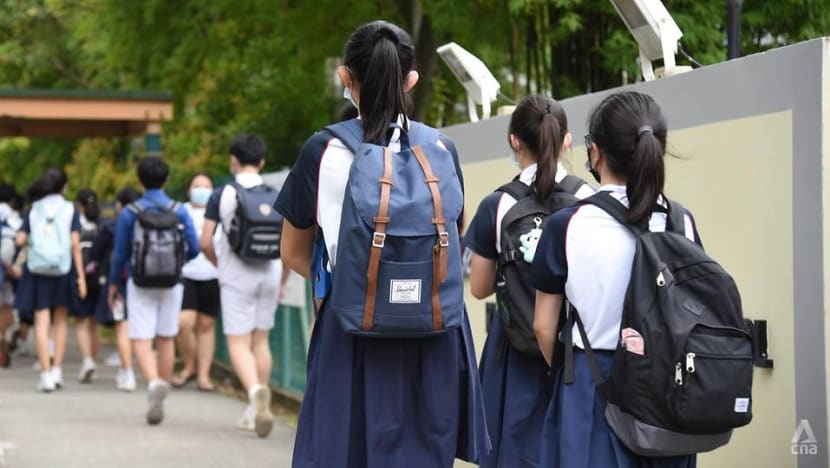
Ms Rachel added that one of the essential elements of healing is sharing one's experience in the presence of a safe person.
"Talk about it, whether it’s to a parent, friend, colleague or peer. The moment we start to share our story, we’re no longer alone with it and it’s not trapped inside us.”
This incident can be a reminder for parents to work on building a strong bond with their teenagers, added parenting coach Ms Loi.
"So that when a crisis happens, they are willing to open up to process their negative emotions and thoughts with us parents, and we can better support and care for them," she said.
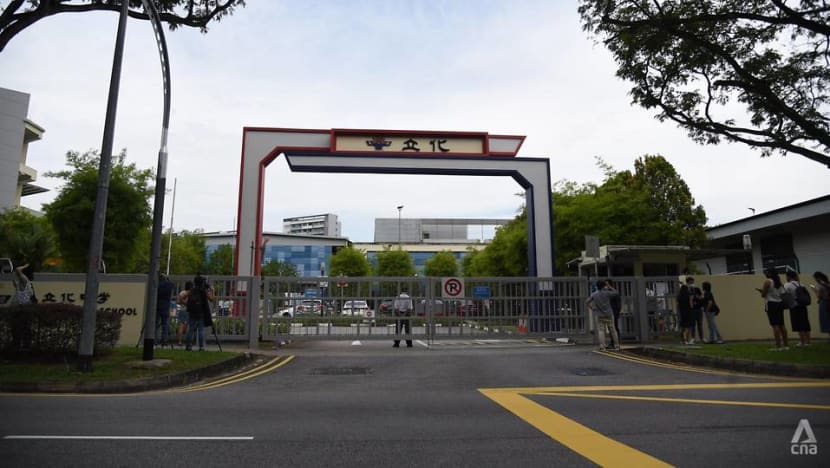
Ms Loi noted, however, that parents may have to be careful about probing too much into what their child might be feeling.
“We don’t want to unknowingly, even though it’s out of concern, pry too much and rub off our own anxiety,” she said.
“Some teenagers might not be talking too much with their parents already. So some families might not be able to get much information out of their kids and this might frustrate them or make them more anxious.”
Prof Yeo said some students might need quiet time to reflect on their own, and it is important to give them space to do so. Parents can let them know that they can reach out for help when they are ready.
“While I can appreciate that parents want to help their children get over the incident by giving advice, it is helpful at this early stage to provide the children with a listening ear and allow them to voice their thoughts and fears," she said. "In this way, parents can better meet the emotional needs of their children."
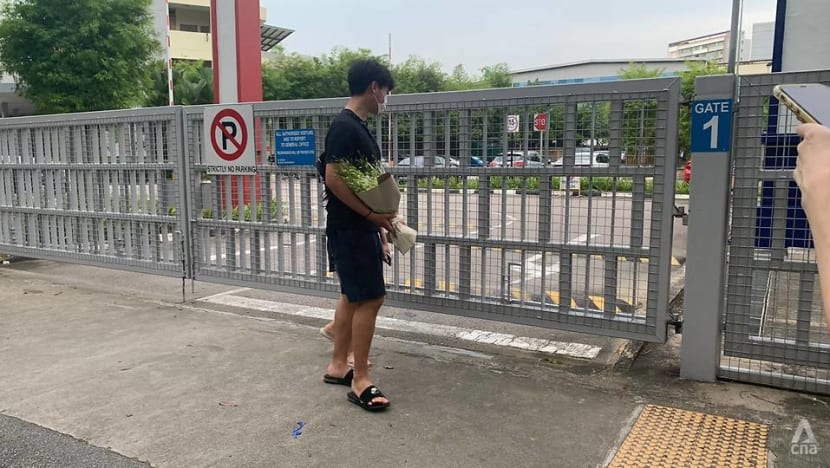
Prime Minister Lee Hsien Loong, in expressing his condolences to the victim's family on Tuesday, said help will be given to students and teachers affected by the incident.
"The teachers and students of RVHS are also in shock. We will help you walk through this dark valley, and come to terms with what has happened," he wrote in a Facebook post.
A CARE (Caring Action in Response to Emergencies) post will be set up in the school for the next few days, said Education Minister Chan Chun Sing. It will be manned by ministry and school counsellors trained in trauma management.
Restoring a sense of safety for those affected by a traumatic event is "the first thing we need to give back to the community", said Dr Badge.
“It requires a lot of self-awareness, and compassion to oneself and each other,” she added. “When you share a common feeling, you hold space for each other. You create safety for the mind.”
Moving on from the incident doesn't mean living in fear of everything, said Ms Loi.
“Process those emotions and fears. Tell your children this is part of life. We want to treasure every day; we want to do our best to prepare for the unexpected. But if something bad happens to good people, we will stay together as a family,” she added.
“It’s about building a sense of hope - first with ourselves, otherwise we will also be doom and gloom. The world is increasingly complex, but there is still hope.”












